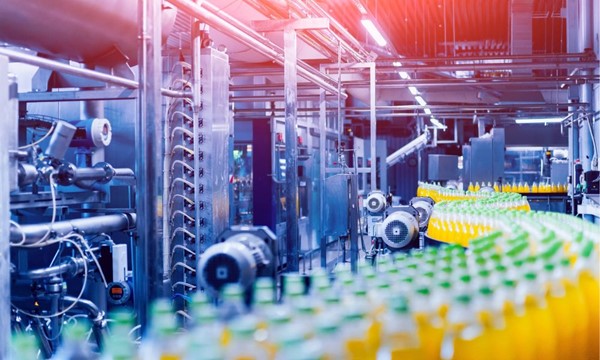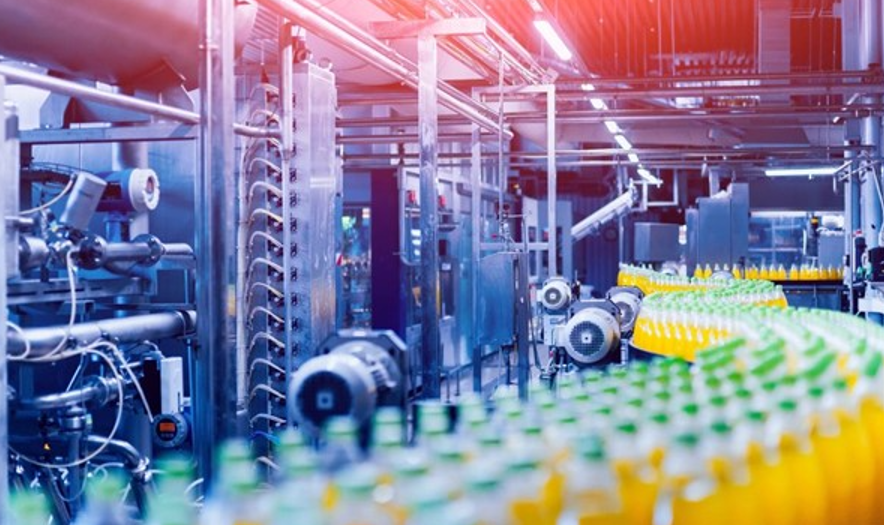
Although some companies are still hesitant, the reality is clear: industrial automation is revolutionizing how consumer goods are made. As we step deeper into the era of Industry 4.0, manufacturers in the consumer packaged goods (CPG) sector are discovering the transformative benefits of smart, connected, and automated production environments.
With the rapid rise of smart manufacturing technologies, businesses that embrace automation gain critical advantages across productivity, quality, cost, and scalability. In this post, we explore the top reasons why automation in consumer packaged goods manufacturing is no longer optional—it’s essential.
In this article
- Automation enables 24/7 operation, increasing output and reducing downtime.
- Precision tools and real-time monitoring minimize errors and maintain high product standards.
- Reduces labor, waste, and energy costs while maximizing resource efficiency.
- Removes humans from hazardous or repetitive tasks, reducing injury risks.
- Easily adapt production lines to changing consumer demands or new product launches.
- Leverages Industry 4.0 technologies to create data-driven, agile, and future-ready operations.
Enhanced productivity around the clock
One of the most immediate and measurable benefits of automation is a dramatic increase in production output. Automated systems can operate 24/7 without breaks or fatigue, accelerating cycle times and minimizing downtime. This level of efficiency is especially valuable in consumer goods manufacturing, where speed to shelf is critical.
As demand patterns shift faster than ever, smart manufacturing helps ensure that companies can meet high-volume production targets without compromising performance.


Improved product quality and consistency
Manual operations are vulnerable to human error, inconsistencies, and variability. In contrast, industrial automation brings precision, repeatability, and advanced quality control to every step of the production line. For consumer packaged goods, where uniformity is key to brand trust and regulatory compliance, this consistency is a game-changer.
Advanced automation technologies also enable real-time quality checks, using sensors and AI to detect defects early, reduce rework, and protect the integrity of the final product.
Lower production costs over time
While the upfront investment in automation for consumer goods manufacturing can be significant, the long-term ROI is substantial. Automated systems reduce labor costs, waste, and energy usage—leading to lower cost per unit and more sustainable operations.
Smart factory systems also help optimize resource use, schedule maintenance proactively, and prevent costly downtime, allowing manufacturers to do more with less.


Safer work environments
Repetitive, physically demanding, and hazardous tasks are common in consumer packaged goods manufacturing. By automating these processes, companies significantly reduce the risk of injury and improve workplace safety.
Robots can handle heavy lifting, high-heat environments, or repetitive actions—freeing human workers to focus on supervision, quality, and innovation. This shift not only reduces incidents but also boosts employee morale and retention.
Flexibility to adapt and scale
In today’s fast-moving consumer market, agility is a competitive advantage. Automation gives CPG manufacturers the flexibility to reconfigure lines for new product SKUs, shift production volumes based on demand, and launch new products faster.
Modern Industry 4.0 systems enable seamless integration between machines, data platforms, and analytics—making it easier to scale operations or pivot when needed without major disruption.

A smarter, more competitive future: Harness the true power of automation
Automation isn’t just about robotics—it’s about building an interconnected smart manufacturing environment. From digital twins and predictive analytics to IoT-enabled equipment, manufacturers are now leveraging data in real time to make smarter decisions.
Companies that embrace industry 4.0 principles are seeing gains not just in operations, but in competitiveness, speed to innovation, and customer satisfaction. For consumer packaged goods, automation is the foundation of future-ready manufacturing.
The benefits of automation in consumer packaged goods manufacturing are too powerful to ignore. Whether you’re looking to increase throughput, ensure consistent product quality, improve safety, or reduce costs—industrial automation is the key to achieving those goals.
At Eclipse Automation, a part of Accenture, we specialize in designing and building custom automation systems that align with the goals of smart manufacturing and Industry 4.0. Let us help you transform your operations and gain a competitive edge in the evolving consumer goods market.

Book a no hassle pre-automation discussion with a consumer goods expert.
